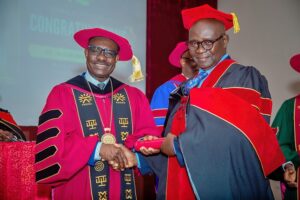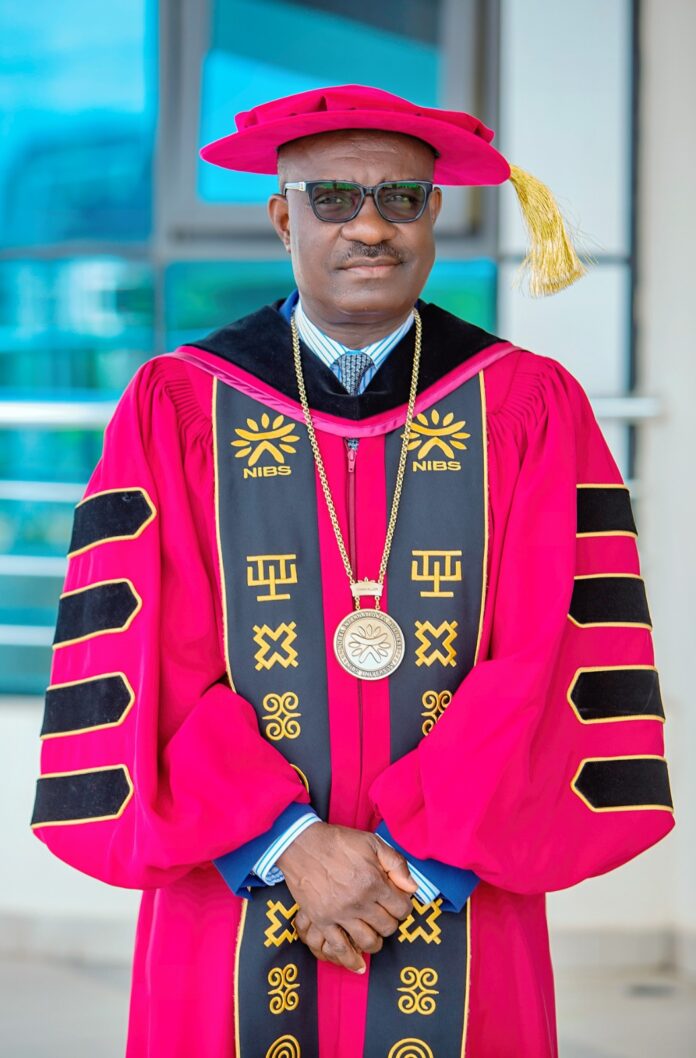The Chancellor of Nobel International Business School (NiBS) and President of the ECOWAS Bank for Investment and Development (EBID), Dr. George Agyekum Donkor, has called on graduates of the university to lead the charge in driving innovation and crafting solutions to Africa’s most pressing challenges.
Speaking at NiBS’ inaugural graduation ceremony held in Accra on Saturday, June 29, Dr. Donkor encouraged the 58 graduating doctoral scholars to boldly apply their research skills to influence public policy and business strategy across the continent.
Themed “Leaders of Thought, Architects of Growth,” the event marked a significant milestone in higher education on the continent.
“In a world marked by volatility, economic uncertainty, and technological shifts, Africa needs bold thinkers and solution-oriented leaders,” Dr. Donkor stated.
“Our graduates must rise to the occasion—not only to solve problems but also to protect the vulnerable and promote inclusive growth.”
Dr. Donkor emphasized that EBID, as a regional development bank, is committed to advancing Africa’s transformation through strategic investments in education.

He noted that the graduation of NiBS’ pioneering cohort demonstrates progress in building Africa’s intellectual capital and leadership pipeline.
“Investing in Africa’s human potential is the most sustainable path to regional development,” he added.
The Class of 2025 featured doctoral graduates from 12 African countries, with specializations in business innovation, fintech, and development policy.
The ceremony also saw the launch of the NiBS Global Alumni Network, a platform to foster collaboration among graduates and strengthen their impact across business, governance, and development spheres.
About EBID
The ECOWAS Bank for Investment and Development (EBID) is the financial arm of ECOWAS, composed of 15 West African member states. Headquartered in Lomé, Togo, EBID funds a wide range of development projects across the public and private sectors—including infrastructure, education, rural development, and social services—through loans, equity participation, and other financial instruments.
ALSO READ:


